Health
Research Links Social Support to Improved Contraceptive Decision-Making for Women
Published
1 year agoon

Researchers at Makerere University School of Public Health (MakSPH) are urging the Ugandan government to boost healthcare funding to enhance reproductive health services. Dr. Dinah Amongin, an obstetrics and gynecology expert at MakSPH, has expressed concern about the lack of access to family planning methods, which forces women to use less preferred options due to unavailability.
Dr. Amongin notes that within just six months to a year of using contraception, some women encountered issues and switched methods. This highlights the need for the Ministry of Health to improve the availability of various contraceptive options. A rights-based approach to contraception ensures that women have access to a range of methods, preventing situations where desired options are unavailable at health facilities.
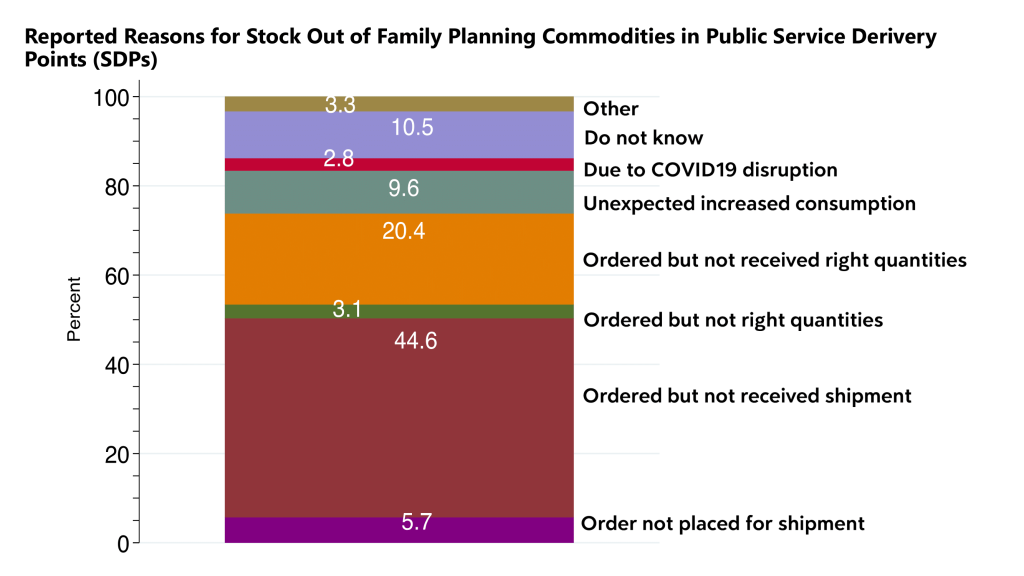
“Stockouts are a significant issue, and this extends to parliamentary discussions on health sector budgets. As we focus on human capital development and improving maternal and newborn health outcomes, we must consider crucial components like preventing unwanted pregnancies through family planning. The budget allocation for the health sector directly impacts this issue. When women cannot access their preferred contraceptive methods due to stockouts, it reflects a failure in our legislative and budgeting processes. This situation forces women to switch to fewer desirable methods, which is not acceptable,” says Dr. Amongin.
Adding that; “These are things we need to continue discussing as a country but we must invest into family planning. We can talk about human capital development but until we step up and actually support women to prevent unwanted pregnancies, support them in their decisions of whether she wants to use a method for contraception or not. That is her choice. We must make sure access to the methods of her choice is actually addressed.”
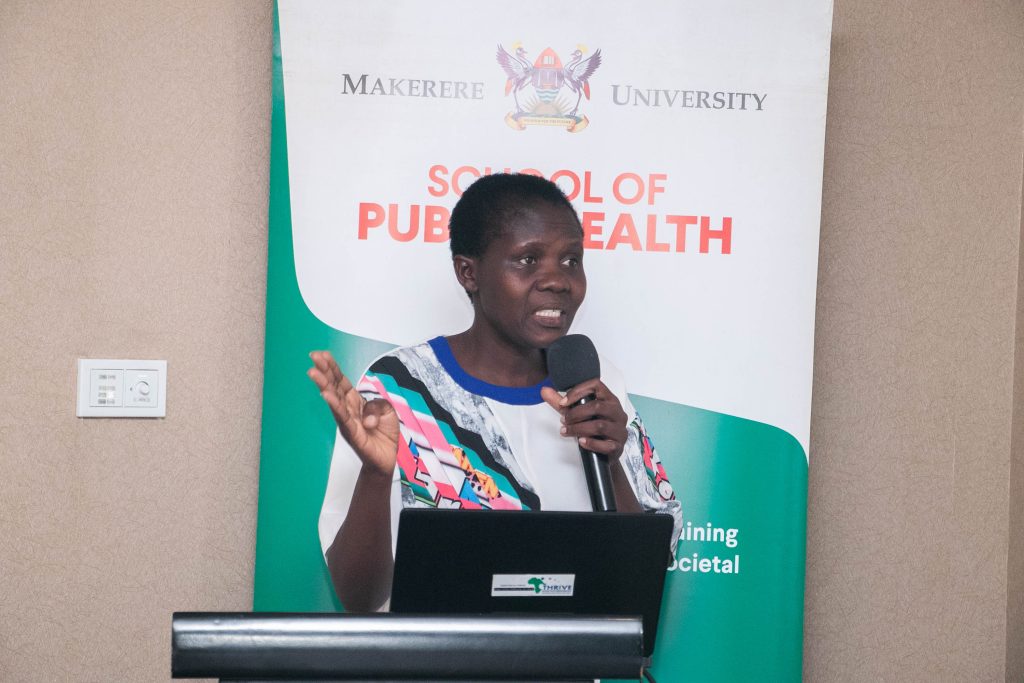
Dr. Amongin’s comments follow a recent study on the I-CAN/Nsobola/An atwero social support intervention, piloted in Mayuge and Oyam districts in 2023. The study highlights that social support significantly improves women’s ability to make informed contraceptive choices, potentially leading to better reproductive health outcomes.
Part of the Innovations for Choice and Autonomy (ICAN) project, the study shows that self-injection with DMPA-SC (Sayana Press) could increase contraceptive use, especially among women with limited access to healthcare. Despite the rollout of this method in 2017, its use remains low in Uganda. Sayana Press as popularly known is a subcutaneous depot medroxyprogesterone acetate (DMPA-SC). It is a hormonal birth control shot, administered under the skin and is an all-in-one contraceptive that puts women in charge of their reproductive health.
Social support boosts self-efficacy, enhances privacy, and reduces access barriers, making self-management easier. Family planning helps manage the number and timing of children, lowering maternal and infant mortality rates and reducing complications from pregnancy. Conversely, unmet contraceptive needs can lead to unintended pregnancies and their associated risks.
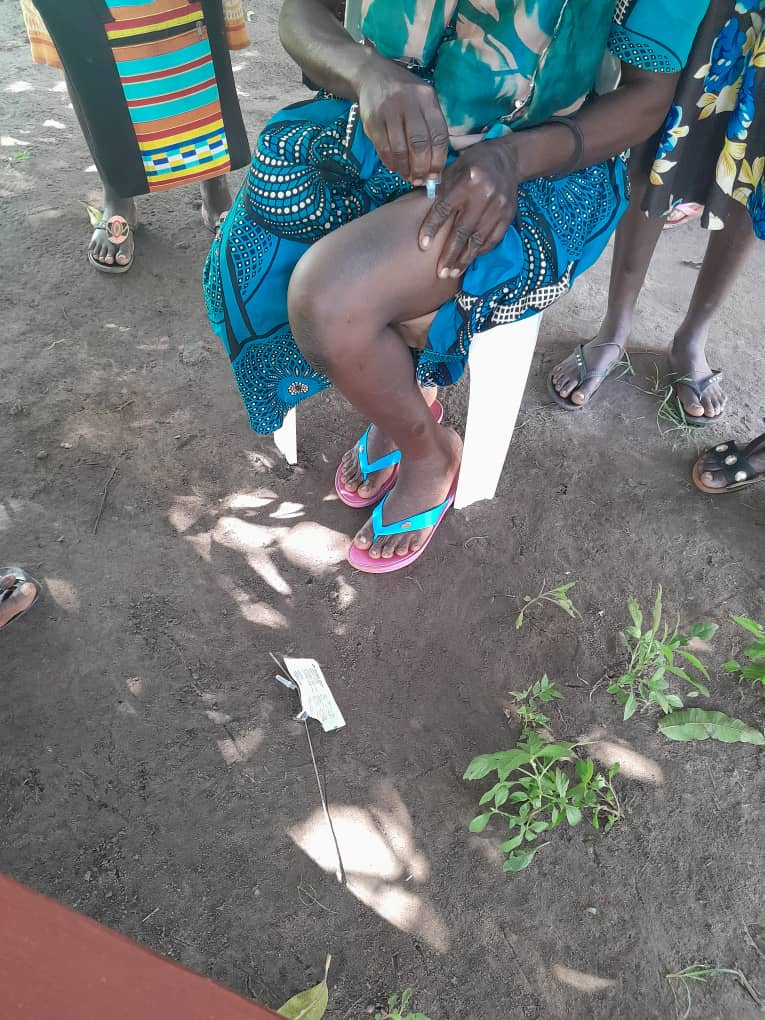
In Uganda, 52% of pregnancies are unwanted or mistimed, with over 43% due to unmet family planning needs. The country’s youthful population complicates the issue, with 50% under 17 years old, at least according to the recent National Population Census. Notably, 10% of girls, one in every 10 girls you encounter, has already had sex before she turns 15 years, and 20% of boys, two in 10 boys have engaged in sexual intercourse by the same age.
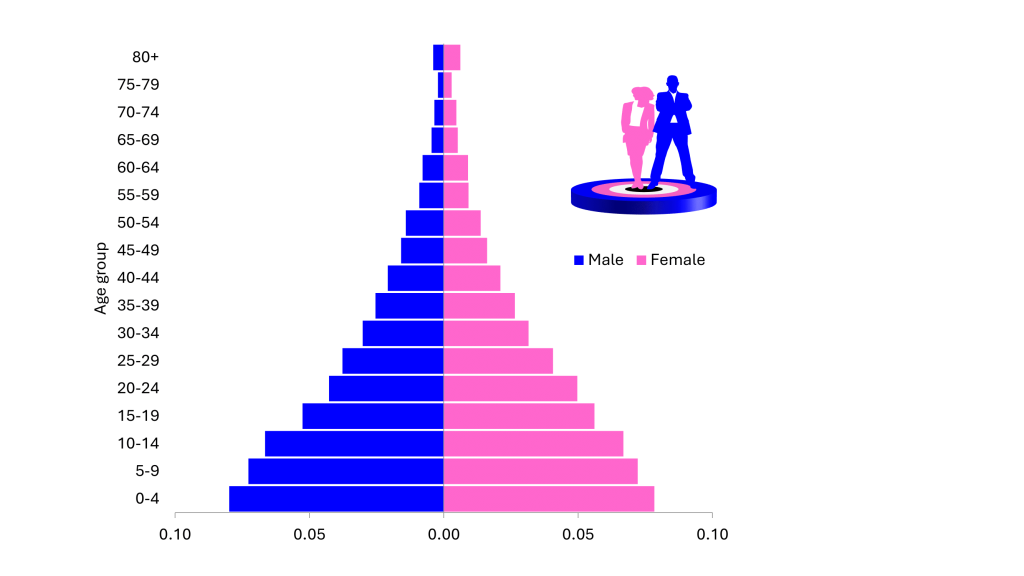
Methods of contraception include oral contraceptive pills, implants, injectables, patches, vaginal rings, intra uterine devices, condoms, male and female sterilization, lactational amenorrhea methods, withdrawal and fertility awareness-based methods.
Global statistics show that 77.5% of women aged 15–49 had their family planning needs met with modern methods in 2022, up from 67% in 1990. In sub-Saharan Africa, the proportion of women who have their need for family planning satisfied with modern methods (SDG indicator 3.7.1) continues to be among the lowest in the world at 56 per cent. Nevertheless, it also increased faster than in any other region of the world, having more than doubled since 1990, when this proportion was only 24 per cent.
Among 1.9 billion women of reproductive age (15-49 years), an estimated 874 million women use a modern contraceptive method and 92 million, a traditional contraceptive method. The number of modern contraceptive users has nearly doubled worldwide since 1990 (from 467 million). Yet, there are still 164 million women who want to delay or avoid pregnancy and are not using any contraceptive method, and thus are considered to have an unmet need for family planning.
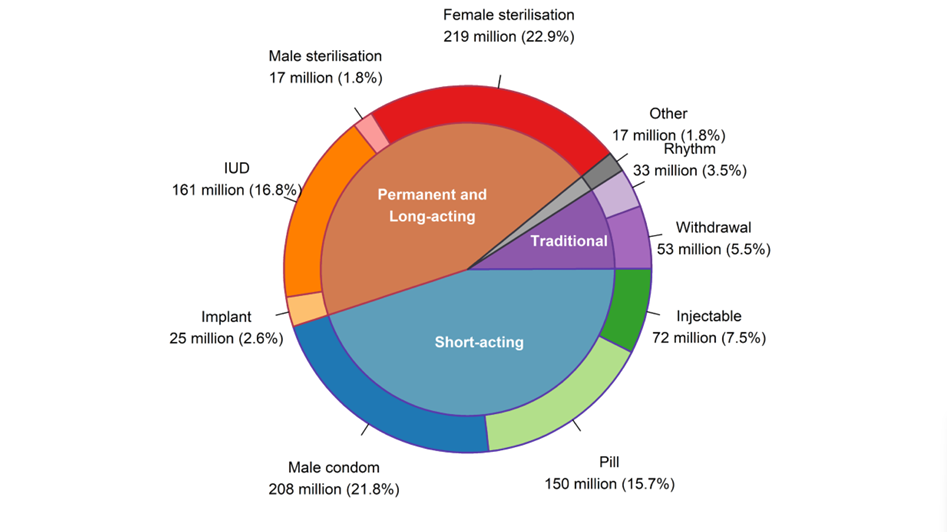
Slow progress is due to factors like limited method choices, restricted access, fear of side effects, cultural opposition, and gender-based barriers.
Between 2015 and 2019, there were 121 million unintended pregnancies annually worldwide – 48 per cent of all pregnancies. Despite decreases in the rate of unintended pregnancy in all regions over the past three decades, nearly one in 10 women in sub-Saharan Africa, Western Asia and Northern Africa, and Oceania (excluding Australia and New Zealand) continue to experience an unintended pregnancy every year
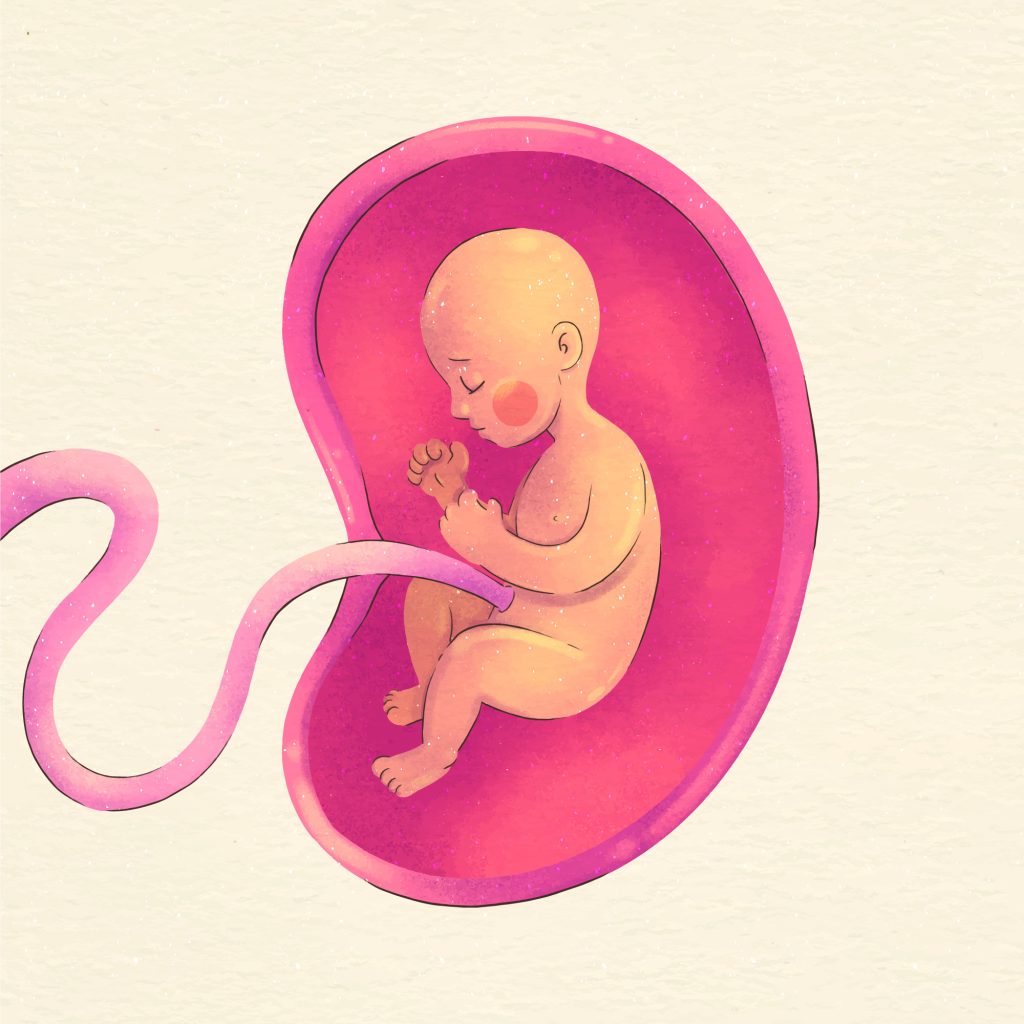
In Uganda, where healthcare services are stretched thin and women juggle numerous responsibilities, accessing contraceptives can be challenging.
Dr. Amongin emphasizes that self-injection methods like DMPA-SC, also known as Sayana Press could ease the burden on women facing long queues and logistical challenges at health facilities. “This method allows for discretion and reduces the need for frequent visits, which is crucial for women with busy lives,” she says.
Researchers argue that the health sector’s budget should include substantial funding for family planning. The high cost of inaction is evident: neglecting family planning leads to unplanned pregnancies, which ultimately burdens families and the nation. Addressing this issue early in the life cycle is crucial to prevent these long-term consequences.
“This is the gist of the matter behind all our research, that a woman’s preference needs to be respected. The health facilities must stock commodities so that when a woman is in need, she actually gets it,” noted Dr. Amongin.
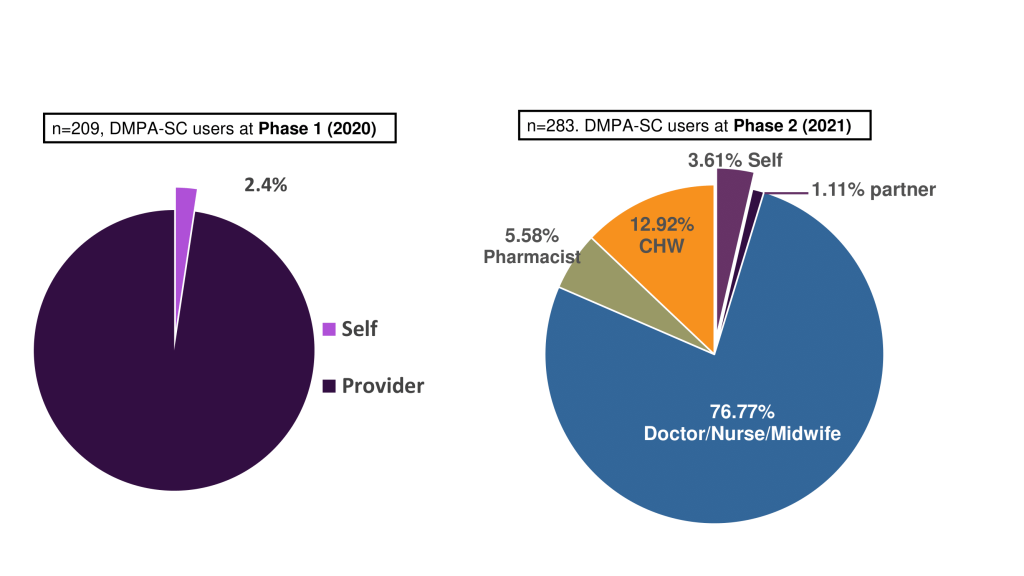
Dr. Peter Waiswa, an Associate Professor at MakSPH, stresses the importance of informed choice in family planning. ICAN studies across Kenya, Malawi, Nigeria, and Uganda show that self-injection benefits all women, including young adolescents. “Supporting young people to make informed choices helps prevent unintended pregnancies,” says Prof. Waiswa.
“We spent four years trying to understand which women benefit from injecting themselves. And we found that all women benefit from it, including younger children. Because younger children in Uganda, whether we hide our heads in the sand or not, especially those 12 years and above are having sex and some of them using contraceptives,” Professor Waiswa says.
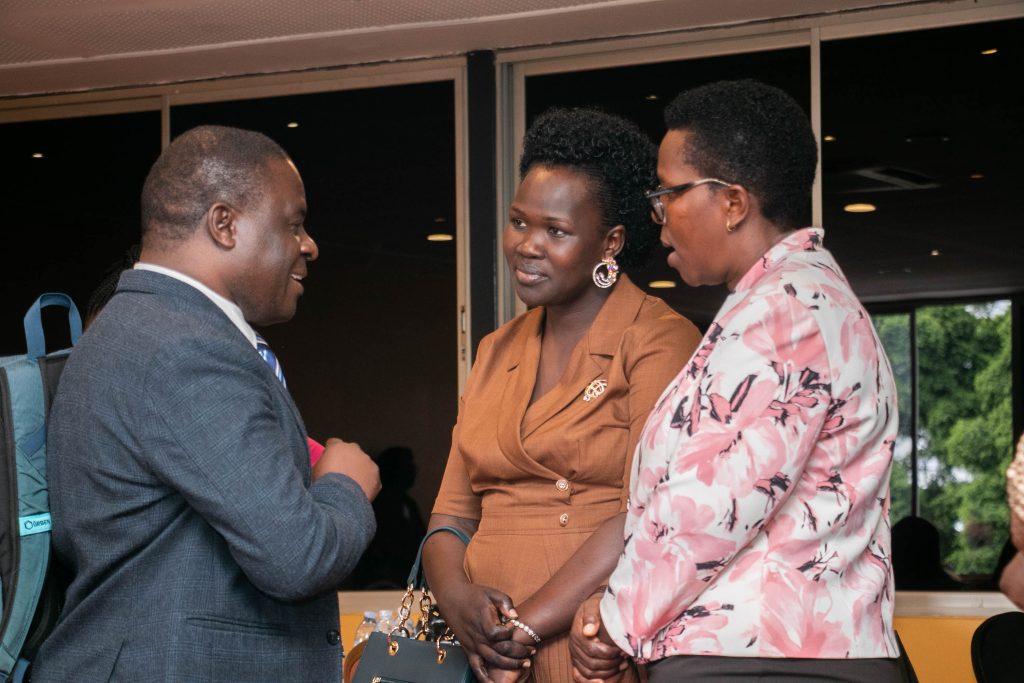
What is factually true is that by age 18, 60% of Ugandans have reported having sexual intercourse. Despite the benefits, dropout rates from family planning methods remain high due to side effects and lack of support. Dr. Waiswa also, a Public Health specialist, critique and dreamer for better health systems for mothers, newborns and children in Africa calls for better education and support to address these issues.
“As a way of being supported in a safe space whereby people are not asking questions, they are not fearing parents, they are not fearing other people, then they can use the methods. What we did in Mayuge and Oyam, we trained women who are users of family planning. To identify people who need to use family planning but are not currently using and then they go and see whether they can use or not. And we found that when people are supported, those groups which are currently not being reached can be reached by family planning,” argues Prof. Waiswa.
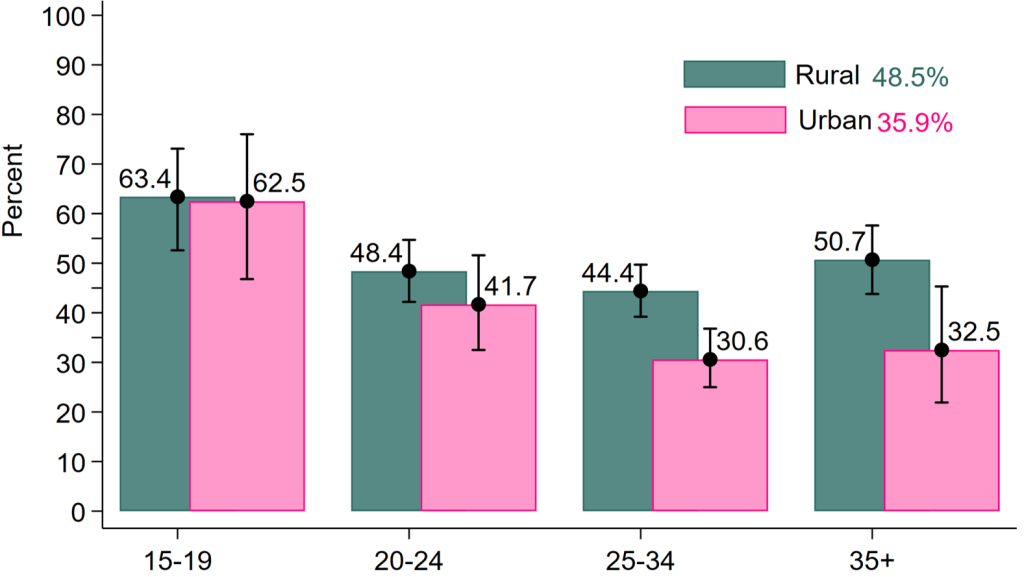
A 2021 study found that contraceptive discontinuation significantly impacts the effectiveness of family planning services, leading to higher fertility rates, unwanted pregnancies, and induced abortions.
Analysis of data from PMA 2020 show that 6.8% of women discontinued contraceptive use, with discontinuation linked to factors such as age, marital status, method type, and health concerns. The study suggests prioritizing interventions to encourage contraceptive use among young people and promoting partner involvement and awareness, as many contraceptive methods are not discreet.
Prof. Waiswa is concerned of the high dropout rate from family planning methods, where many women discontinue use due to side effects, a need for better education and support.
“We need to see how to educate women so that they are informed when they are choosing a method to use. They need to have enough information because when they discontinue, the method can be ineffective, can cause side effects, but also these methods are expensive, so they waste money. There are a lot of those who change to other methods. We are learning a lot on the use of family planning why we still have a large unmet need,” says Prof. Waiswa.
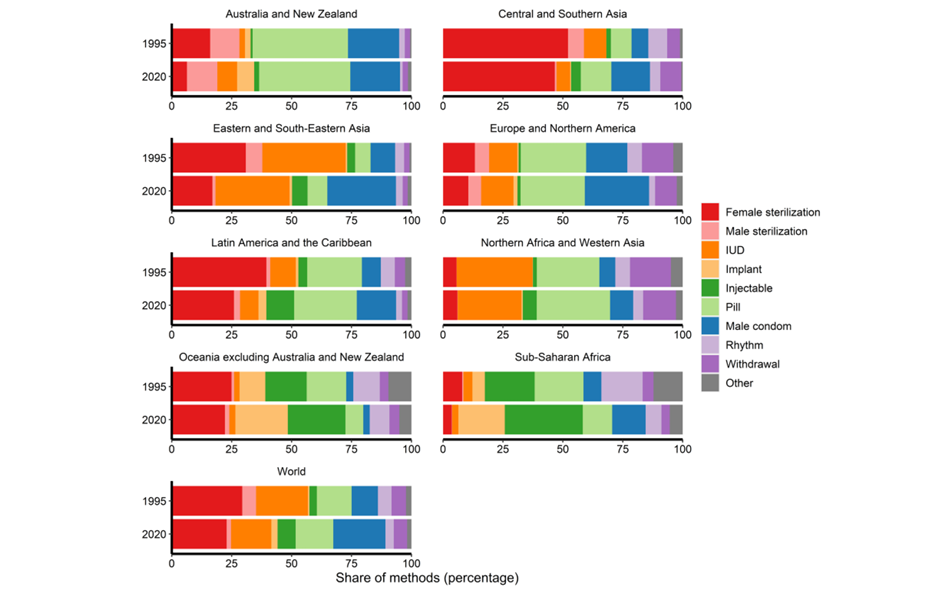
Ms. Roseline Achola, Technical Specialist for Sexual and Reproductive Health and Self-Care at the Ministry of Health, hailed the MakSPH study on self-injection contraception. She noted that the findings will help her enhance support for self-care initiatives. However, she expressed that only 29% of women willing to self-inject as indicated in the study is still low, highlighting a need to address barriers to increase acceptance as well as managing sexually active adolecents. “We must discuss how to handle minors seeking contraception to prevent unintended pregnancies,” she says.
On Friday August 23, 2024, the Daily Monitor reported, an increase in young girls adopting family planning to combat teenage pregnancies and school dropouts. Quoting data from the Uganda Health Information System, statistics show that between March 2023 and March 2024, 2,476 girls under 15 had their first antenatal care visit, and 1,755 gave birth. The highest number of pregnancies among this age group was in Oyam district.
In this period, Lango subregion saw 52 pregnancies among this age group, with Oyam district recording the highest at 10 cases. The 2021 UNFPA fact sheet indicates that Busoga region, particularly Kamuli and Mayuge districts, has the highest rates of teenage pregnancies, with 6,535 and 6,205 cases respectively.
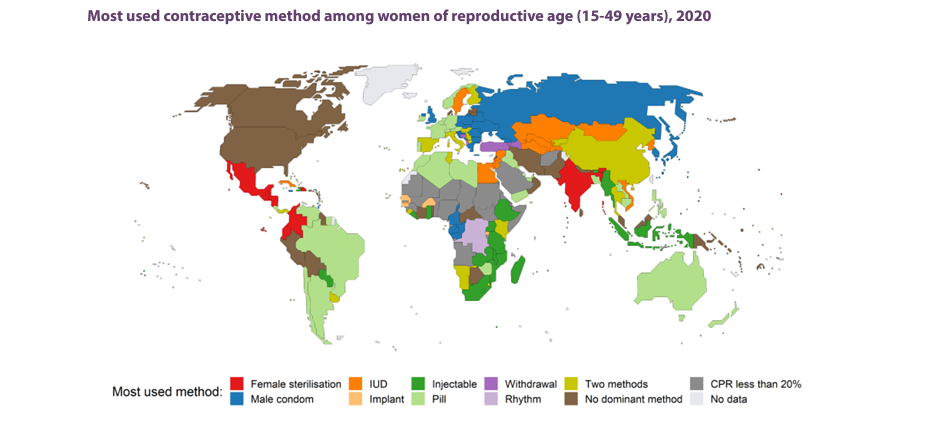
“As the country, it’s clear that adolescents are limited to access to contraception because of so many reasons. For us as a Ministry, any woman between the age of 15 to 49 is a woman of reproductive age and that tells you that she is capable of getting pregnant and when such a girl of probably 15 years goes to a facility to seek for contraception, it rings a message that actually she is sexually active. So how do we handle her? So that is a matter of discussion for the country.
It is a matter that the nation needs to decide on, because we all know the girls are getting pregnant, the girls want to use contraception, but they have no access because of the fact that they are children,” wondered Achola.
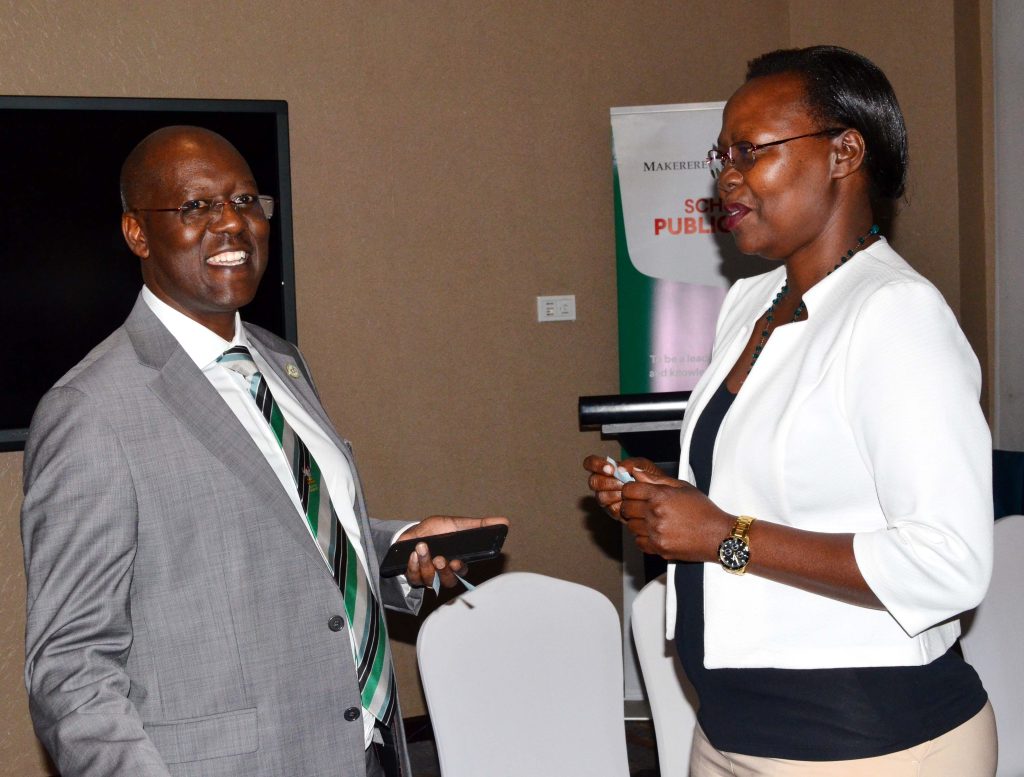
Unintended pregnancies and Uganda’s abortion paradox
Abortion in Uganda, is largely illegal except in specific circumstances. It contributes to maternal death due to unsafe practices. Between 2010 and 2014, WHO reported that 30.6million abortions conducted were safe and 25.1million were unsafe. 97% of these occurred in developing countries. In East Africa, the total number of abortions per year according to the Lancet are around 2.65million.
The Ministry of Health’s HMIS data show a rise in abortion cases, with 96,620 reported between July 2020 and June 2021in both government and private health facilities.
Another recent study on the quality of post-abortion care by MakSPH researchers Assoc. Prof. Lynn Atuyambe, Dr. Justine Bukenya, Dr. Arthur Bagonza and Mr. Sam Etajak highlights the need for accurate post-abortion care data to improve healthcare planning and policymaking.
Dr. Arthur Bagonza, a Public Health Consultant and Research fellow with specialization in health systems at MakSPH and one of the uality of post-abortion care has called for accurate abortion data to improve healthcare planning and policymaking. He notes that health workers often avoid documenting abortion data due to legal fears and calls for reforms to restrictive laws to ensure accurate reporting without legal repercussions.
“All assessed health facilities reviewed in our study achieved a 100% timeliness rate for report submissions. However, significant disparities were observed in data accuracy between different levels of health facilities, with lower-level facilities (HC IIs and HC IIIs) showing higher rates of data discrepancies,” says Dr. Bagonza.
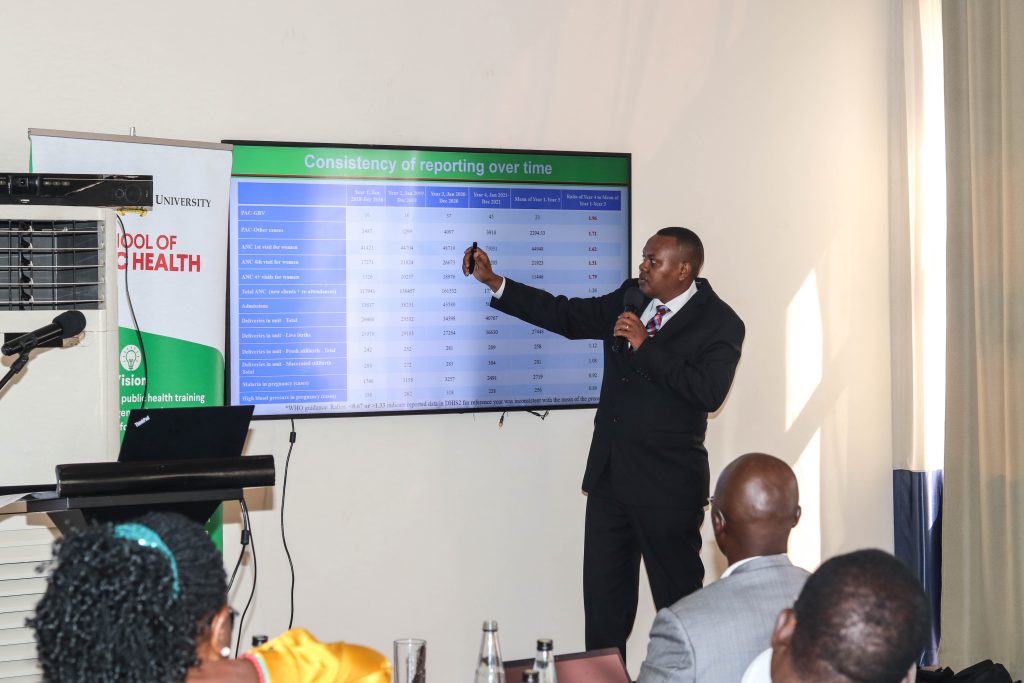
According to Dr. Amongin, the high incidence of early sexual activity among Uganda’s youth is a pressing public health issue.
“We know as a country many women continue to die following unsafe abortions; abortions for pregnancies that they did not want. And these abortions are highest among adolescents and also other women categories.
We would want to ensure that we actually enhance access to contraceptives, but making it easier for them to have it and putting the power in the hands of a woman to as much extent as we can. So that a woman can practice what we call self-care, but of course she also will need the support of the healthcare system. But we want this power in women’s hands because of all the challenges that the women actually can encounter in accessing these methods,” she said.
On her part, Achola insists that abortion should not be a last resort for women and urges them to abstain or use protective means in order to avoid unwanted pregnancies. She notes that as long as abortion remains illegal in Uganda, many health workers will avoid addressing it, leading people to unsafe alternatives.
“I can’t be happy because abortion means we have failed to give people a method of their choice to prevent that pregnancy. Or the people are not able to access contraception to prevent unintended pregnancies. Abortion is not the last resort, it’s not a solution because it has its own complications as well,” says Achola.
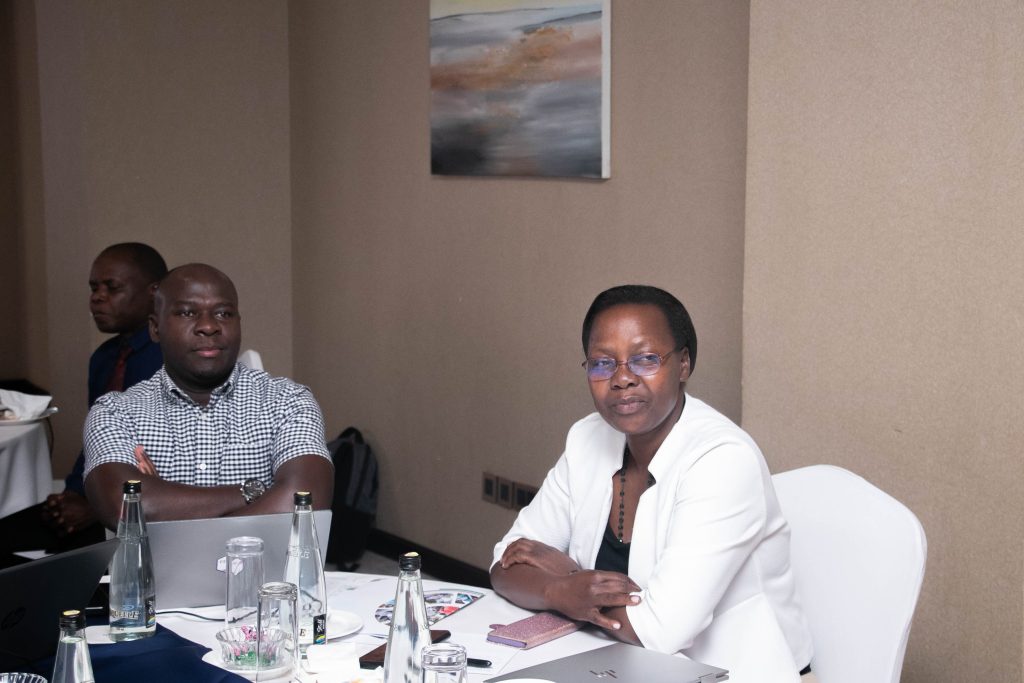
Despite this, Achola, notes most of the women who walk in health facilities with post-abortion complications must be attended to. “Whereas we don’t encourage people to do abortions, as Ministry of Health we are mandated to handle all complications for anyone who walks in our facilities because our priority is to save life. We want to urge women to avoid certain things. Why should you wait for unintended pregnancy to occur and then abort?”
Dr. Charles Olaro, a Senior Consultant Surgeon and the Director Health services – Curative in the Ministry of Health highlights the financial burden on individuals seeking health services and suggests exploring private sector opportunities and community-based approaches to improve access. “We need to balance values and rights while addressing access barriers,” he notes.
According to Dr. Olaro, the autonomy and agency of women in sexual and reproductive health, particularly in African cultures remain a challenge where social norms may require women to defer decisions to their partners.
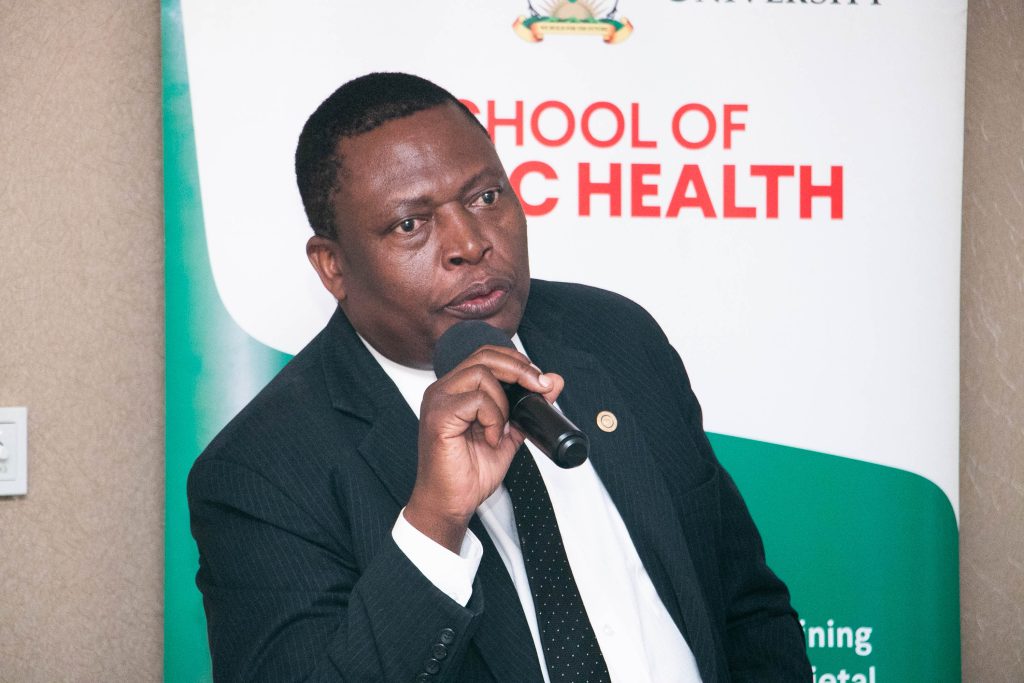
He notes that there is a high burden of abortion and self-harm, with a significant portion of maternal mortality attributed to sepsis, which is often a result of unsafe abortions in Uganda.
“We still need evidence to ensure that access barriers are addressed. And this is a question I keep on asking Makerere University, yes, we have a young population but how are these people accessing contraceptives. Other issue we have to deal with is complex. I know we have to do a balance between values and rights, but we will be able to look at that when they gain the success to do it.”
Dr. Olaro points out that individuals often face a financial burden in health services, spending more on prescriptions than on the medications themselves. He suggests exploring private sector opportunities and a community-based approach to improve access to healthcare.
NB: The PMA surveys are spearheaded by Associate Professor Fredrick Makumbi and Dr. Simon Kibira of MakSPH, with support from the Uganda Bureau of Statistics and the Ministry of Health. The initiative also receives funding from the Bill & Melinda Gates Foundation, The Children’s Investment Fund Foundation (CIFF), and is supported by the Bill & Melinda Gates Institute for Population and Reproductive Health at Johns Hopkins University and Jhpiego.
You may like
-


Makerere Launches Scholarly Guide, Calls for Increased Research, Publication and Innovation in Africa
-
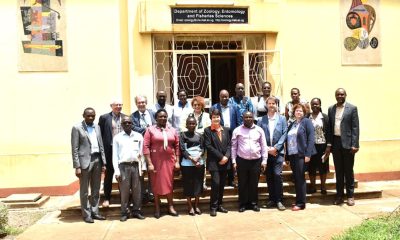

BOKU University Charts New Collaboration Strategies with Mak’s Department of Zoology, Entomology & Fisheries Sciences
-


When Birth Becomes the Most Dangerous Moment, Wanduru & the Work of Making Labour Safer
-
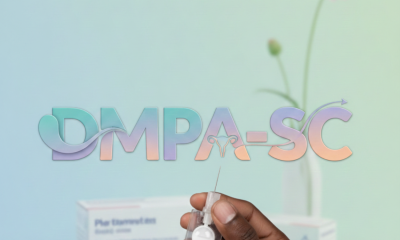

Study Alert: Power in Her Hands; Why Self-Injectable Contraception May Be a Game Changer for Women’s Agency in Uganda
-
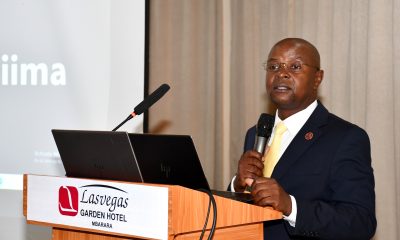

Building Skills for Better Public Investments: PIM Centre Trains Public Sector Economists
-


How Jimmy Osuret Turned Childhood Trauma into Evidence for Safer School Crossings
Health
Call for Applications: Short Course in Molecular Diagnostics March 2026
Published
6 days agoon
February 12, 2026By
Mak Editor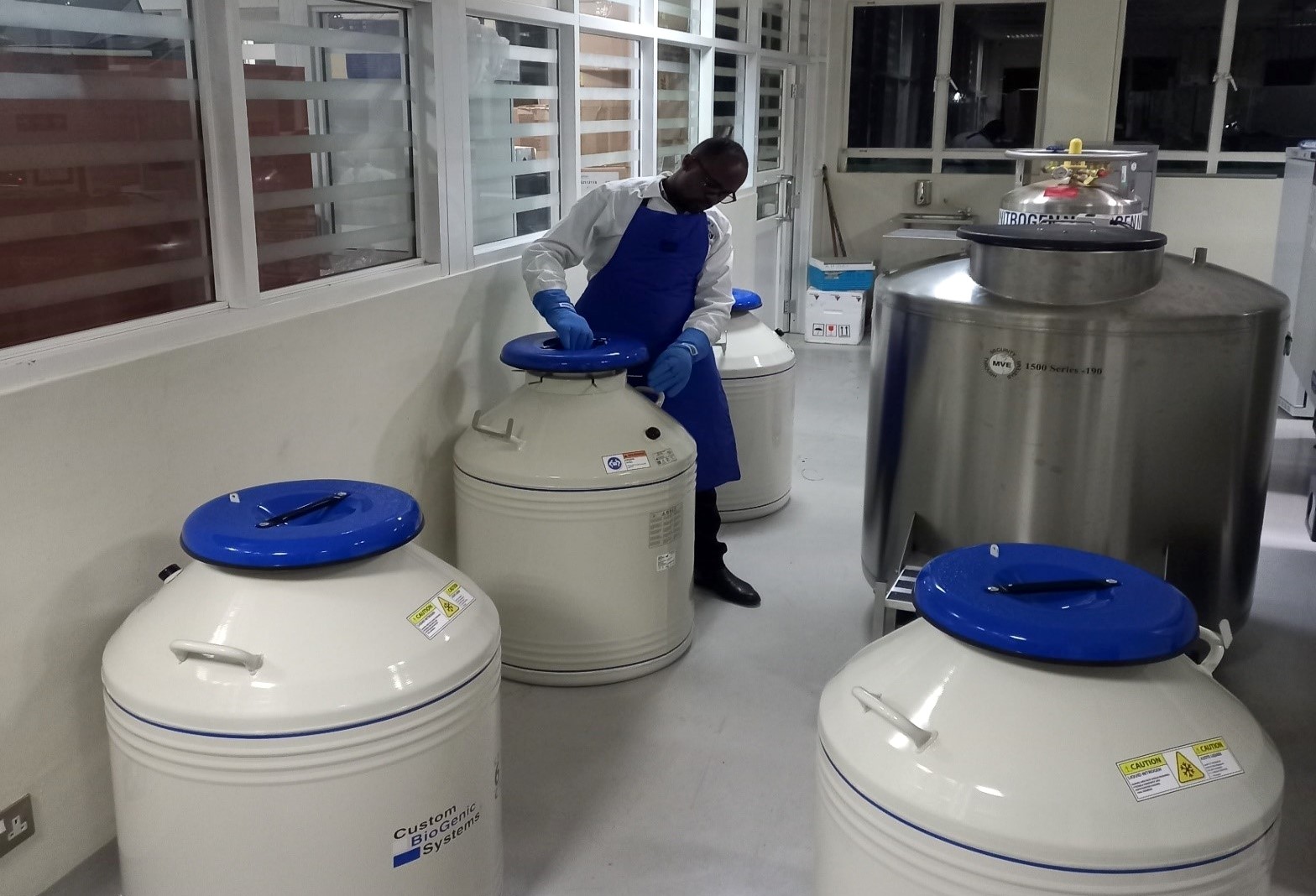
Makerere University College of Health Sciences, Department of Immunology and Molecular Biology, in collaboration with the Makerere University Biomedical Research Centre (MakBRC), is pleased to invite applications for a Short Course in Molecular Diagnostics scheduled for 23rd–27th March 2026.
This hands-on course will introduce participants to core principles and practical skills in molecular diagnostics, including nucleic acid structure and function, laboratory design and workflow, PCR setup, gel electrophoresis and DNA band interpretation, contamination control and quality assurance, and clinical applications of PCR in disease diagnosis.
The training will take place at the Genomics, Molecular, and Immunology Laboratories and will accommodate 30 trainees. The course fee is UGX 500,000.
Target participants include:
- Graduate students with basic exposure to molecular biology (e.g., MICM, MSBT)
- Final year undergraduate students (e.g., BBLT, BMLS)
- Medical and veterinary clinicians
- Agricultural professionals interested in practical molecular biology
To apply, please send your signed application via email to nalwaddageraldine@gmail.com (copy Dr. Eric Kataginy at kataginyeric@gmail.com). Indicate your current qualification, physical address, and phone contact (WhatsApp preferred), and attach a copy of your National ID or passport data page, your current transcript or testimonial, and your degree certificate (if applicable).
The application deadline is 13th March 2026. Successful applicants will be notified by email. Admitted participants are required to pay the course fee within five days to confirm their slot.
For further inquiries, don’t hesitate to get in touch with Ms. Geraldine Nalwadda on +256 701 361449.
See download below for detailed call.
Health
When Birth Becomes the Most Dangerous Moment, Wanduru & the Work of Making Labour Safer
Published
1 week agoon
February 11, 2026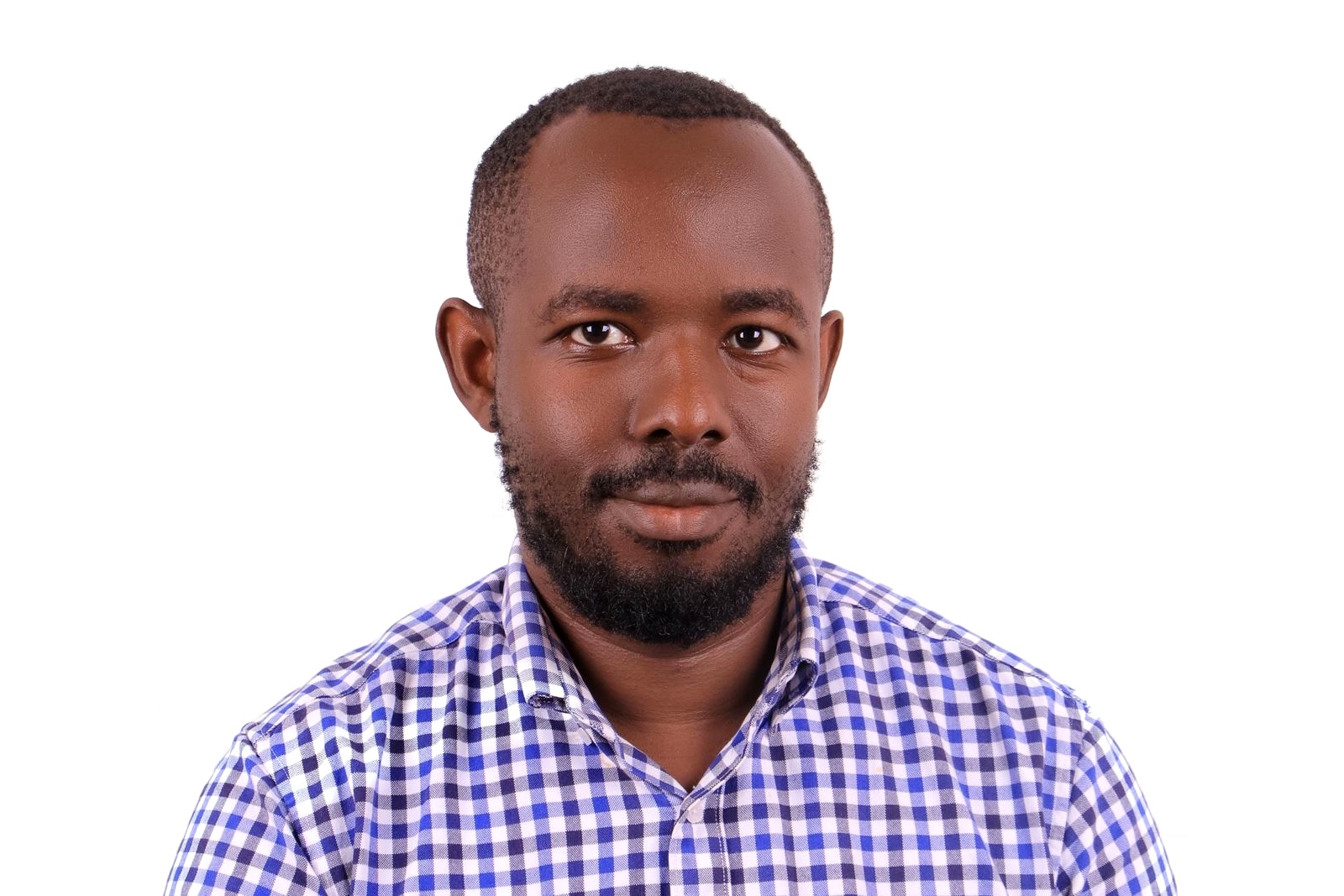
The ward is never quiet during labour. Even at night, there are cries, some sharp with pain, others muted by exhaustion. Monitors beep. Midwives move quickly between beds. In the moments just before birth, everything narrows to breath, pressure, and time.
It was in places like this, years ago, that Phillip Wanduru first learned how fragile that moment can be.
Working as a clinical nurse at Nakaseke Hospital in central Uganda, he watched babies who should have survived struggle for breath. Some were born still. Others cried briefly, then went silent. Many were not premature or unusually small; they were full-term babies whose lives unraveled during labour.
“What troubled me most,” Wanduru recalls, “was that these were complications we have known how to manage for more than a hundred years, prolonged labour, obstructed labour, and hypertension. And yet babies were still dying or surviving with brain injuries.”
Those early encounters never left him. They became the questions that followed him into public health, into research, and eventually into a doctoral thesis that would confront one of Uganda’s most persistent and preventable tragedies.

A Public Defense, Years in the Making
On Friday, June 13, 2025, Wanduru stood before colleagues, mentors, and examiners in a hybrid doctoral defense held at the David Widerström Building in Solna, Sweden, and online from Kampala. The room was formal, but the subject matter was anything but abstract.
His PhD thesis, “Intrapartum-Related Adverse Perinatal Outcomes: Burden, Consequences, and Models of Care from Studies in Eastern Uganda,” was the culmination of years spent listening to mothers, following newborns long after delivery, and documenting what happens when birth goes wrong.
He completed the PhD through a collaborative programme between Makerere University and Karolinska Institutet, under the supervision of Prof. Claudia Hanson, Assoc. Prof. Peter Waiswa, Assoc. Prof. Helle Mölsted Alvesson, and Assoc. Prof. Angelina Kakooza-Mwesige, a team that bridged global expertise and local reality. His doctoral training unfolded as the two institutions marked 25 years of collaboration, a partnership that has shaped generations of public health researchers and strengthened research capacity across Uganda and beyond.
By the time he defended, the findings were already unsettlingly clear.
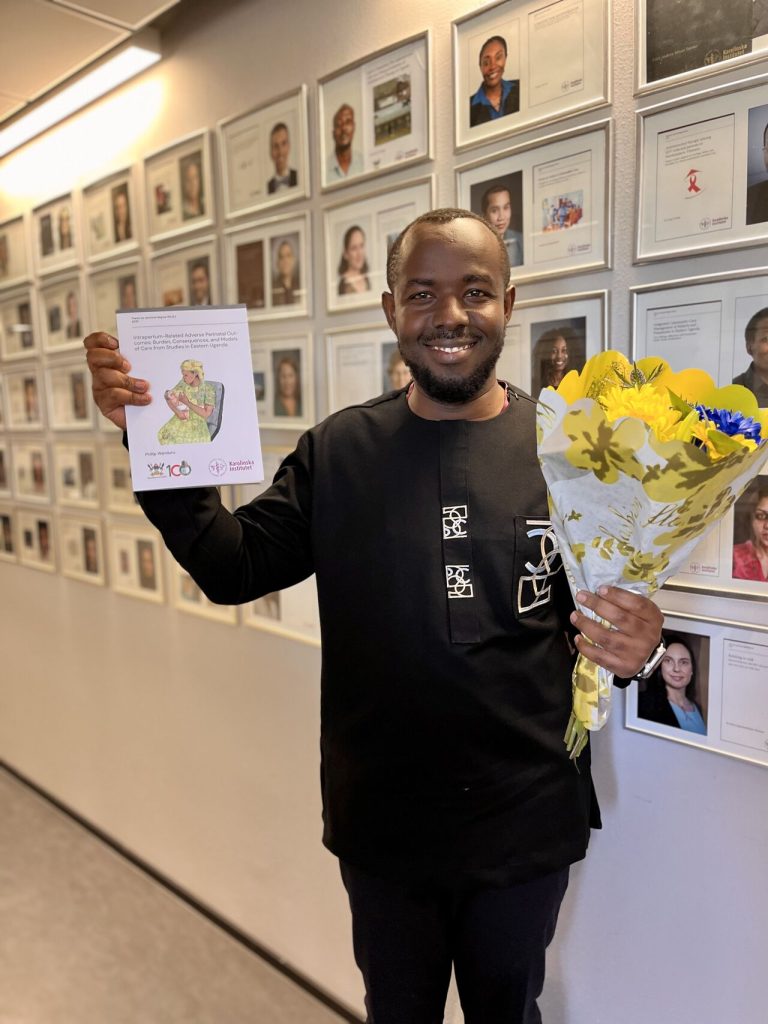
One in Ten Births
In hospitals in Eastern Uganda, Wanduru’s research found that more than one in ten babies experiences an intrapartum-related adverse outcome. This medical term refers to babies who are born still, die shortly after birth, or survive with brain injury caused by oxygen deprivation during labour.
Among those outcomes, stillbirths accounted for four in ten cases. Five in ten babies survived with brain injury.
“These are not rare events,” Wanduru explains. “They are happening every day, often in facilities where care should be available.”
But survival was only part of the story.
Following infants diagnosed with intrapartum-related neonatal encephalopathy for a year, his research revealed that about seven in ten babies with severe brain injury died before their first birthday. Among survivors, many faced lifelong challenges, difficulty walking, talking, and learning.
“What happens in labour,” he says, “does not end in the delivery room. It follows families for years.”
He describes the findings of his PhD research as appalling, evidence of an urgent failure in how labour and delivery are managed, and a call for immediate action to prevent avoidable complications. “Babies with severe brain injuries,” he notes, “faced the greatest odds. Even when they survived birth, nearly seven in ten died before their first birthday. Of those who lived beyond infancy, about half were left with long-term challenges, including difficulties with walking, talking, or learning.”
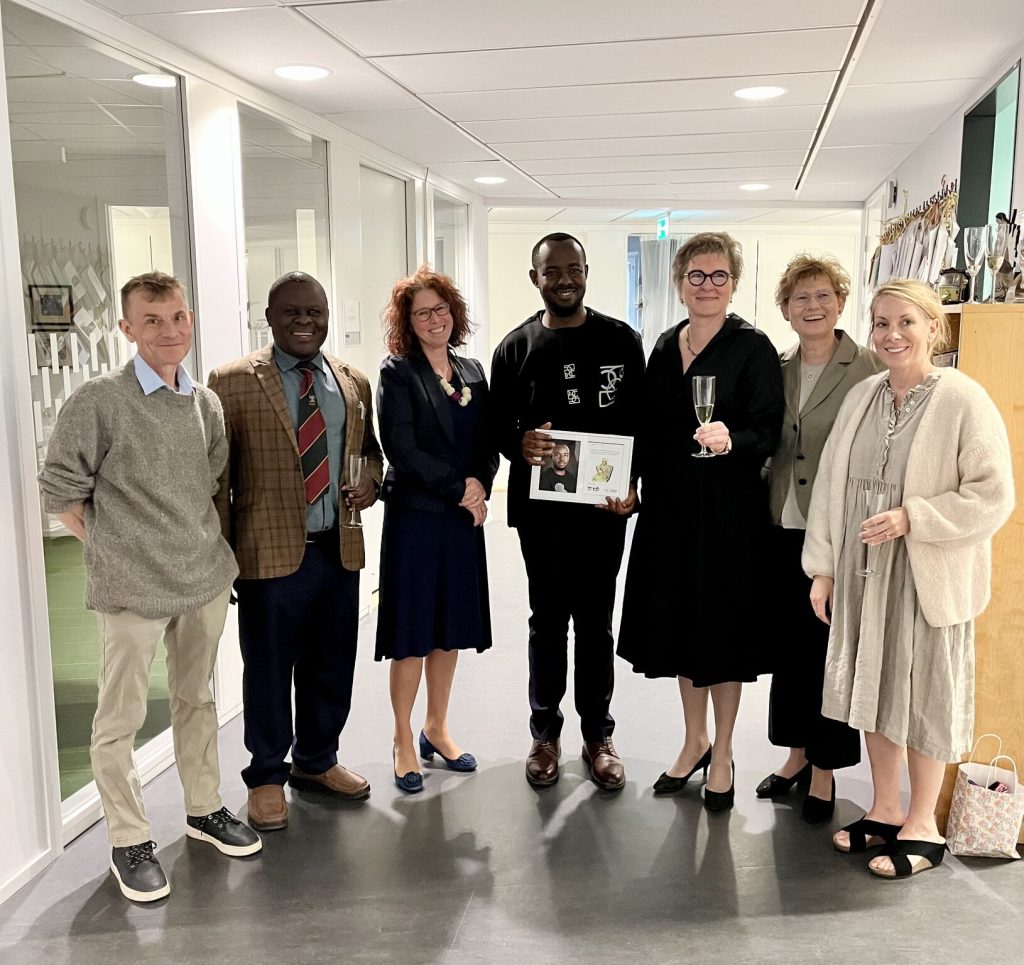
Mothers at the Centre—Yet Often Invisible
Wanduru’s work did not stop at numbers. Through in-depth interviews with mothers and health workers, he uncovered a quieter truth that parents, especially mothers, were desperate to help their babies survive, but often felt unsupported themselves.
Mothers followed instructions closely. They learned to feed fragile babies, keep them warm, and monitor breathing. They complied with every rule, driven by fear and hope in equal measure.
“The survival of the baby became the only focus,” Wanduru says. “But the mothers were exhausted, emotionally drained, and often ignored once the baby became the patient.”
Even as mothers remained central to care, their own physical and mental well-being received little attention. For the poorest families, the burden was heavier still: long hospital stays, transport costs, and uncertainty about the future.
These insights shaped one of the thesis’s most powerful conclusions: saving newborn lives requires caring for families, not just treating conditions.
Why Care Fails—Even When Knowledge Exists
One of the most uncomfortable findings in Wanduru’s research was that emergency referrals and caesarean sections did not consistently reduce the risk of brain injury, except in cases of prolonged or obstructed labour.
The problem, he found, was not the intervention, but the delay.
In many facilities, hours passed between identifying a complication and acting on it. Ambulances were unavailable. Referral systems were weak. Operating theatres lacked supplies or staff.
“These are not failures of science,” Wanduru says. “They are failures of systems.”
His work reinforces a sobering reality for policymakers that most intrapartum-related deaths and disabilities are preventable, but only if care is timely, coordinated, and adequately resourced.
From Bedside to Systems Thinking
Wanduru’s path into public health began at the bedside. After earning a Bachelor of Science in Nursing from Mbarara University of Science and Technology in 2011, he trained as a clinician, caring for patients during some of their most vulnerable moments. He later completed a Master of Public Health at Makerere University in 2015, a transition that gradually widened his focus from individual patients to the health systems responsible for their care.
His work gradually drew him deeper into the systems shaping maternal and newborn care. As a field coordinator for the MANeSCALE project, he worked within public and private not-for-profit hospitals, helping to improve clinical outcomes for mothers and babies. Under the Preterm Birth Initiative, he served as an analyst, contributing to efforts to reduce preterm births and improve survival among vulnerable infants through quality-improvement and discovery research across Uganda, Kenya, and Rwanda.
In the Busoga region, he coordinated prospective preterm birth phenotyping, following mothers and babies over time to better understand the causes and consequences of early birth. Since 2016, this work has been anchored at Makerere University School of Public Health, where he serves as a Research Associate in the Department of Health Policy, Planning, and Management.
Across these roles, he found himself returning to the same question: why babies continue to die during a moment medicine has long learned to handle.
Models of Care That Could Change Outcomes
Wanduru’s thesis does more than document failure; it points toward solutions.
He highlights family-centred care models, including Kangaroo Mother Care, which keep babies and parents together and improve recovery, bonding, and brain development. He emphasizes early detection of labour complications, functional referral systems, and rapid access to emergency obstetric care.
“These are not new ideas,” he says. “The challenge is doing them consistently.”
He also calls for recognizing stillbirths, not as inevitable losses, but as preventable events deserving data, policy attention, and bereavement support.
“Stillbirths are often invisible,” he notes. “But they matter to mothers, to families, and to the health system.”
Research That Changes Practice
For Wanduru, the most meaningful part of the PhD journey is that the evidence is already being used. Findings from his work have informed hospital practices, advocacy reports, and quality-improvement discussions.
“Yes, the PhD was demanding,” he admits. “But knowing that the work is already contributing to change makes it worthwhile.”
His mentors see him as part of a broader lineage, researchers committed not only to generating evidence but to ensuring it improves care.
With a PhD in his bag, Wanduru sees his work as a continuation rather than a conclusion.
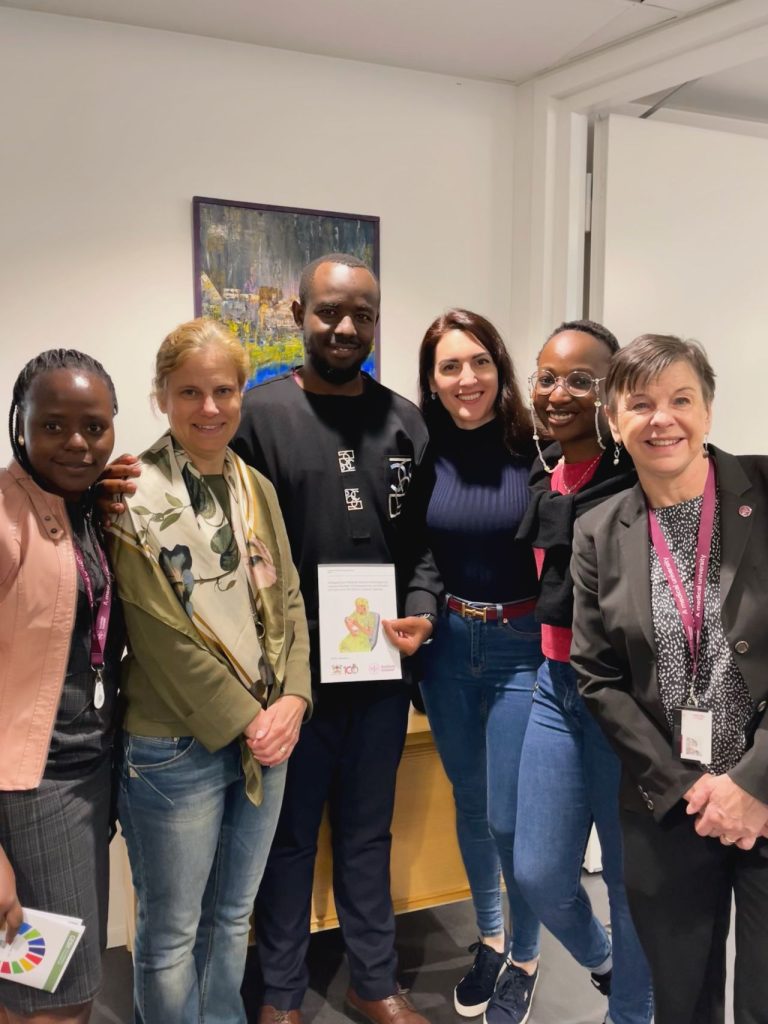
“The fight to make birth safe for every mother and baby continues,” he says. “I want to contribute to improving care and to building the capacity of others to do the same.”
That means mentoring young researchers, strengthening hospital systems, and keeping the focus on families whose lives are shaped in the delivery room.
Dr. Wanduru joins fellows in the MakSPH PhD forum who concluded their doctoral journeys in 2025, and his work speaks for babies who never cried, for mothers who waited too long for help, and for health workers doing their best within strained systems. It insists that birth, while always risky, does not have to be deadly.
— Makerere University School of Public Health Communications Office, Graduation Profiles Series, 76th Graduation Ceremony
Health
Study Alert: Power in Her Hands; Why Self-Injectable Contraception May Be a Game Changer for Women’s Agency in Uganda
Published
1 week agoon
February 10, 2026By
Mak Editor
By Joseph Odoi
In the remote villages of Eastern and Northern Uganda, a small medical device is doing far more than preventing unintended pregnancies, it appears to be quietly shifting the balance of power in women’s lives.
A new study titled “Is choosing self-injectable contraception associated with enhanced contraceptive agency? Findings from a 12-month cohort study in Uganda” has revealed that self-injection gives women more than just a health service, it can boost their confidence, control, and agency over their reproductive health.
The research was conducted by Makerere University namely; Professor Peter Waiswa, Catherine Birabwa, Ronald Wasswa, Dinah Amongin and Sharon Alum in collaboration with colleagues from the University of California, San Francisco
Why this Study matters for Uganda
For decades, family planning in Uganda has followed a provider-client model. Women travel long distances to clinics, wait in queues, and rely on health workers to administer contraception. This system creates barriers transport costs, clinic stock-outs, long waiting times, and limited privacy.
Self-injectable contraception, known as DMPA-SC, disrupts this model by shifting care from the clinic to the individual woman.
DMPA-SC is a discreet, easy-to-use injectable that women can administer themselves after receiving basic training and counselling.
What the Data Tells Us
To see if self-care technology actually shifts the needle on women’s power, researchers tracked 1,828 women across Eastern (Iganga and Mayuge Districts) and Northern Uganda (Kole, Lira, and Oyam Districts) for a full year. They compared women who chose to self-inject their birth control (216 women) against a control group, most of whom chose methods requiring dependency on clinics (1,612 women).
The Six-Month “Agency Spike”
The study used a Contraceptive Agency scale (scored from 0 to 3) to measure a woman’s internal confidence and her ability to act on her health choices.
The Self-Injectors
For the Self Injectors, their agency scores rose significantly, from 2.65 to 2.74 by the six-month mark.
The Clinic-Dependent Group
Scores for the group using mostly provider-led methods (like clinic shots or implants) remained nearly flat, moving from 2.61 to only 2.63.
Within just six months, women who took control of their own injections noted that they felt a measurable boost in their Consciousness of reproductive Rights (0.08 points) since they transitioned from being passive recipients of care to active decision-makers.
Using the Agency in Contraceptive Decisions Scale (scored 0–3), the study found a clear empowerment advantage for women who chose self-injection.
The findings come at a time when Uganda has reaffirmed its commitments under FP2030, aiming to expand access to voluntary, rights-based family planning. The study also aligns with the National Family Planning Costed Implementation Plan, which prioritises method choice, equity, and continuation, as well as national gender and youth empowerment strategies.
Can Uganda Sustain and Scale DMPA-SC?
Self-injectable contraception does not require continuous high-cost investment. Training and rollout costs are largely one-time, and the main recurring expense is the contraceptive commodity itself. Compared with the cumulative costs of repeated clinic visits for both the health system and women self-injection is more cost-effective over time.
Advancing primary health care with DMPA-SC
Beyond cost savings, self-injection eases pressure on health facilities and allows health workers to focus on more complex care. It also extends health services into communities, supporting continuity of care in areas where facilities are few and far between. In this way, family planning is no longer confined to the clinic.
While donor support has helped introduce the method, it can be sustained locally without relying on external funding. “With predictable national financing and reliable commodity supply chains, DMPA-SC can reach more women and be fully integrated into Uganda’s health system, strengthening both access and community-level service delivery’’ according to the researchers.
Implications for Policy and Practice
As Uganda continues to reform its primary health care system, the findings add evidence to ongoing discussions about how family planning services are delivered, financed, and prioritised.
The research also positions self-injectable contraception not as a temporary innovation, but as a scalable method with the potential to be embedded within national systems provided that commodity availability and financing are safeguarded.
To ensure these gains are lasting, researchers recommend moving beyond the technology and addressing the structural and social barriers that can limit women’s agency.
Key recommendations from the researchers include the following
1. Reliable Supply Chains
Empowerment collapses when products are unavailable. DMPA-SC must be consistently stocked at the community level.
2. Creating a Supportive Social Environment
Privacy concerns, stigma, and partner resistance must be tackled through community engagement and sensitisation.
3. Prioritizing Informed Choice
Self-injection should be offered as a top-tier option in every facility, framed as a fundamental right to autonomy rather than just a medical convenience.
4. Integrated Counseling
Providers must be trained to support women not only in the “how to inject” but also in navigating the social challenges of self-care.
On the next step, the researchers call for a clear integration of DMPA-SC into national health financing, protection of family planning commodity budgets, and deliberate scaling of self-injectable contraception within Primary Health Care reforms. These actions will ensure sustainability, reliable access, and greater control for women over their reproductive choices according to the researchers.
Read the full study here: https://www.contraceptionjournal.org/article/S0010-7824(26)00003-X/fulltext
Trending
-

 Agriculture & Environment2 weeks ago
Agriculture & Environment2 weeks agoFrom Adversity to Excellence: The Inspiring Journey of Makerere’s Best Science Student, Esther Ziribaggwa
-

 General1 week ago
General1 week agoAptitude Exam (Paper 1) Results for the Mature Age Entry Scheme 2026/2027
-

 Health2 weeks ago
Health2 weeks agoDr. Samalie Namukose and the Quiet Work of Making Nutrition Count
-

 Research2 weeks ago
Research2 weeks agoCall for PhD Student Fellowships under H-DATA
-
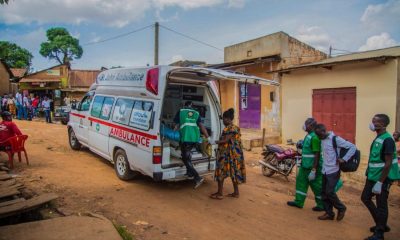
 Health2 weeks ago
Health2 weeks agoHolding the System Together During COVID-19: Steven Kabwama’s Research on Care Continuity
